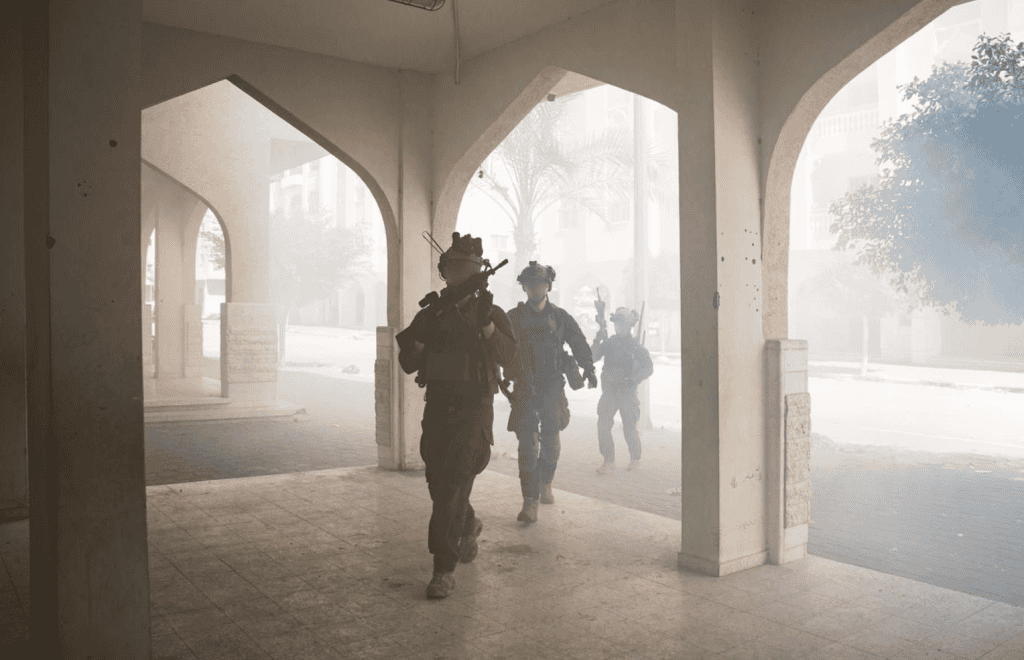
Israeli Prime Minister Benjamin Netanyahu spoke at an IDF officers course graduation ceremony on March 7 at a training base in the Negev. “The IDF will continue to operate against all of Hamas’s battalions throughout the Strip – and this includes Rafah, Hamas’s last stronghold. Whoever tells us not to operate in Rafah, is telling us to lose the war – and that will not happen,” he said.
His comments come as a number of trends are coming together that may make operations in Gaza more complex. Hamas has appeared unwilling to make a hostage deal and continues to raise new issues in discussions, including demands for a ceasefire to take place first in order for Hamas to build confidence for a deal as well as Hamas’ refusal to provide a list of the living hostages still being held in Gaza. There are 134 hostages held by Hamas and around two dozen of them area believed to have been killed.
In addition, the US is considering building a temporary port or dock in Gaza in order to deliver humanitarian aid directly from Cyprus. This follows US efforts to airdrop aid into Gaza as part of a larger program honchoed by the Jordanians. Other aid to Gaza arrives by truck from Egypt after a circuitous and long approval process. When it finally does arrive in Gaza, Hamas gunmen are often seen standing on the trucks to ostensibly escort them, but the image raises questions about who controls the aid once it’s in Gaza.
The lack of a hostage deal and the US pressure to find a solution to the humanitarian aid for northern Gaza potentially underpin a new phase in the IDF’s Gaza operations. In addition, the IDF is also beginning investigations into the October 7 Hamas attack and the failure to protect Israelis on that day, the IDF Chief of Staff said on March 7. Hamas terrorists killed over 1,000 people in the attack and in some cases were able to take over communities and massacre people for up to 12 hours before help arrived. At some IDF bases, whole units were massacred, including the 15 female IDF observers at the Nahal Oz post.
The Israel security service, or Shin Bet, is also beginning an investigation of its operations leading up to October 7. The investigations are being presented as “lessons learned,” rather than attempts to hold high-ranking officials to account.
Amid these new developments, Netanyahu told the new IDF officers that “we are in the midst of a war that could not be more just. The Government set the goals of the war – and you are in the field working to achieve them: Eliminating Hamas’s evil rule, returning home all of our hostages and preventing any future threat to the State of Israel from Gaza.” Netanyahu praised the IDF for facing difficult challenges in Gaza, including the hundreds of miles of tunnels and terrorists fighting in civilian areas. The Prime Minister also said that Israel will “take vigorous action in the other sectors, against whoever seeks to destroy us, including on the northern front.” He compared Israel’s forces to “lions” rather than a “spider web,” a favored talking point of Hezbollah leader Hassan Nasrallah.
Iran’s IRGC Quds Force leader Esmail Qaani warned that the “resistance” has prepared new “surprises.” It also comes as the Palestinian Authority’s foreign minister warned, according to a report at the UAE’s Al-Ain media, of a regional conflict should the war continue during Ramadan.







